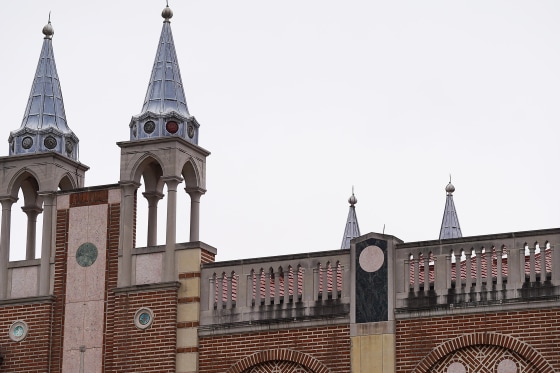The Trump administration’s revocation of student visas and, in separate action, termination of students from a tracking system for foreign scholars, has spread to the South.
Public and private colleges and universities across the Sun Belt have reported that at least a few of their students have had their status as welcome scholars revoked or otherwise changed.
Some university representatives said the institutions found out some of their students had their visas revoked or their immigration status changed by checking the federal Student and Exchange Visitor Information System (SEVIS), a federal tracking system for exchange visitors.
Florida International University spokesperson Dianne Fernandez said 18 foreign students at the institution have had their F-1 student visas revoked.
Texas A&M spokesperson Megan Lacy said 23 international students have had their SEVIS record terminated. “A SEVIS record termination essentially terminates the individual’s legal status in the country,” Lacy said via email.
Other institutions with foreign students who have experienced changes in their tracking or status include New Mexico State, where nine scholars had their visas revoked, a spokesperson said; the University of North Carolina, where six students had their visas terminated, according to the Carolina Alumni Review; Middle Tennessee State, where the status of six students also changed in the federal immigration database, a spokesperson said; and Rice University in Houston, where the visas of three students and two recent graduates were revoked, a spokesperson said.
The University of Texas at Austin has said only that “multiple” foreign students have had their immigration status changed in recent days, according to NBC affiliate KXAN of Austin.
Lacy said Texas A&M was unaware of any affected student there who had participated in political activism.
The other schools did not cite a specific reason for the change of students’ immigration status.
The recent developments come as the administration of President Donald Trump has sought to revoke the visas of hundreds of college and university scholars. Last month, Secretary of State Marco Rubio estimated that 300 foreign college and university students had their visas revoked.
The revocation policy gained attention after March 8, when a former Columbia University postgraduate who helped lead 2024 student protests against Israel’s actions in Gaza and who was living on campus with his wife was arrested outside his home by Immigration and Customs Enforcement agents who said his student visa had been revoked, according to wife Noor Abdalla’s account.
One of his lawyers, Amy Greer, said Abdalla told ICE agents Khalil was a permanent resident with a green card, but they took him away and, according his legal team, have yet to produce an arrest warrant.
On Friday, a judge ruled the Trump administration can deport Khalil.
Khalil’s arrest and continued detention at a federal facility in Louisiana have become a cause célèbre, with protesters fanning out across the nation to decry what they argue is a lack of due process and a clear intention by the Trump administration to silence free speech with which it disagrees.
The Trump administration has been steadfast in its campaign against campus protesters critical of Israel and its war against Hamas militants following the latter’s Oct. 7, 2023, attack on Israel in which 1,200 people were killed and about 250 taken hostage, according to Israeli tallies.
Much of the warfare has taken place in Gaza, which neighbors Israel, and civilians have been displaced and killed in massive numbers, with Palestinian health officials estimating Israeli attacks have killed 50,500 people there.
The Trump administration has said it has the authority to deport Khalil because he “led activities aligned to Hamas, a designated terrorist organization.” His attorneys, however, have argued there is no evidence that Khalil has provided any type of support to terror groups.
Rubio also supported deporting Khalil in a letter that cited an obscure provision of the Immigration and Nationality Act of 1952 that allows the secretary of state alone to “personally determine” whether an immigrant should remain in the country.
An immigration judge in Louisiana on Friday said Rubio’s explanation was all he needed to see and ruled that Khalil can be deported. He has until April 23 to file for relief. At the same time, he’s challenging the basis of his arrest in federal court in New Jersey.
Though the government’s arguments against Khalil’s presence have expanded to include reasons not initially given, including alleged failure to disclose material information on his residency application, White House has increasingly targeted foreign-born students whose main transgression seems to be activism.
“Every time I find one of these lunatics, I take away their visas,” Rubio said in Guyana last month.
CORRECTION (April 13, 2025, 12:41 a.m. ET): A previous version of this article misstated the immigration status change of 23 Texas A&M students. Their records were terminated in the Student and Exchange Visitor Information System; their student visas were not revoked. A previous version also misidentified a Texas A&M spokesperson. She is Megan Lacy, not Megan Bennett.

